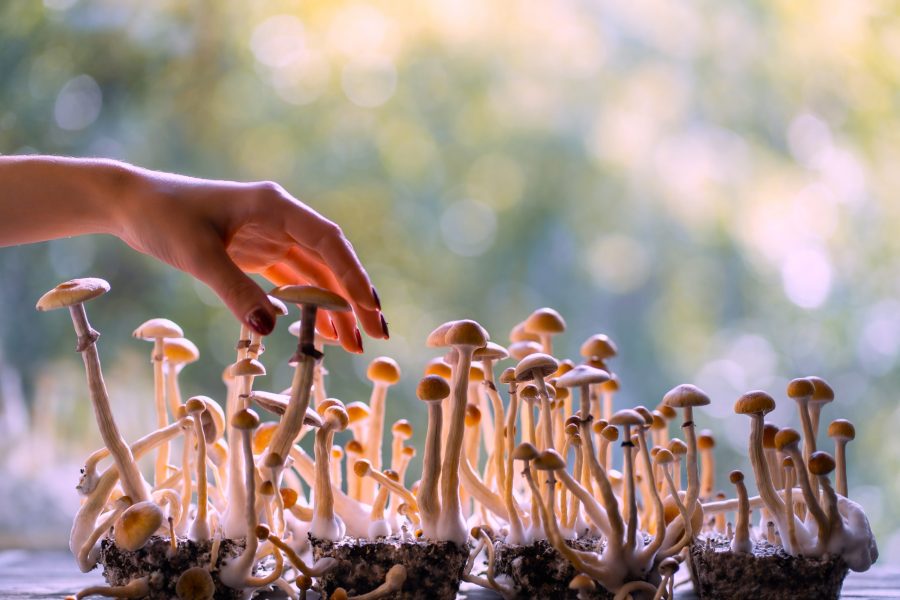CBD, Magic Mushrooms, Psilocybin
Cannabis and Empathy: Can THC Increase Compassion and Emotional Understanding?
Cannabis has long been associated with relaxation, altered perception, and heightened creativity. But beyond these well-known effects, an interesting question has emerged in scientific and cultural discussions: Can THC, the main psychoactive compound in cannabis, increase empathy and compassion?
As society explores plant-based wellness, many people are experimenting with not only cannabis but also shroom baked edibles, shroom chocolate, and shroom gummies as part of their journey toward deeper self-awareness and emotional connection. This growing trend highlights a larger movement—using natural substances to enhance both inner and social experiences.
Understanding Empathy and Emotional Connection
Empathy is our ability to feel and understand another person’s emotional state. It’s not just about recognizing someone’s feelings but also connecting with them on a deeper level. Empathy fuels compassion, strengthens relationships, and is crucial for mental well-being.
For individuals struggling with stress, anxiety, or emotional detachment, the possibility of enhancing empathy through cannabis is appealing. But how exactly might THC influence these processes?
How THC Affects the Brain and Emotions
THC interacts with the endocannabinoid system (ECS), a network of receptors in the brain and body that regulates mood, perception, and social behavior. Specifically, THC binds to CB1 receptors in areas like the amygdala and prefrontal cortex—regions that play key roles in emotional regulation and social processing.
When these brain regions are stimulated, THC may:
- Heighten awareness of emotional cues.
- Lower social inhibitions, making people feel more connected.
- Increase sensitivity to both positive and negative emotions.
In this way, cannabis may create a psychological “openness” that enhances compassion and emotional understanding.
THC and Empathy: What the Research Suggests
Although research is still emerging, several studies point to intriguing possibilities:
- Increased Emotional Awareness
Some users report that cannabis helps them tune into emotions—both their own and those of others. This heightened awareness can make conversations feel deeper and more meaningful. - Stress and Anxiety Reduction
By reducing stress responses, THC may lower the emotional barriers that prevent empathy. When people feel calmer, they are more likely to be patient and compassionate in social settings. - Enhanced Bonding in Social Contexts
Cannabis has been used for centuries in rituals and communal gatherings, where it often enhances a sense of unity. Modern users describe similar effects, feeling more open and connected in group environments.
However, it’s important to note that empathy outcomes can vary by strain, dosage, and individual tolerance. Low doses may enhance connection, while high doses might cause anxiety or emotional withdrawal.
The Parallel Rise of Shroom-Based Wellness
While cannabis is being studied for its potential to increase empathy, psychedelics such as psilocybin (found in magic mushrooms) are also gaining attention. Products like shroom baked edibles, shroom chocolate, shroom treats, and shroom gummies are becoming popular not only for recreational enjoyment but also for their potential to promote emotional healing and compassion.
Psilocybin is known to temporarily dissolve ego boundaries, creating feelings of interconnectedness and unity. Users often describe profound experiences of compassion and empathy—sometimes even spiritual breakthroughs.
The overlap between cannabis and psilocybin use highlights a cultural shift toward intentional plant-based and psychedelic wellness, where people are seeking tools to deepen relationships and self-awareness.
Potential Benefits of THC for Empathy
1. Improved Relationships
Cannabis may help individuals soften their communication style, listen more attentively, and engage with greater patience. This can strengthen romantic relationships, friendships, and even professional interactions.
2. Greater Compassion for Self
Empathy isn’t just about others—it also involves understanding and forgiving ourselves. Some people find that cannabis use fosters self-compassion, reducing harsh self-criticism and promoting inner healing.
3. Support for Therapeutic Settings
There is growing interest in using cannabis in combination with therapy. When used carefully, THC may help clients access emotions that are otherwise difficult to express.
Risks and Limitations
While cannabis shows promise in enhancing empathy, it’s not without drawbacks:
- Emotional Oversensitivity: Some users may become overly sensitive to emotions, which can feel overwhelming.
- Risk of Dependence: Relying on THC to connect with others could lead to psychological dependency.
- Variable Effects: Individual brain chemistry plays a huge role. For one person, cannabis might enhance compassion; for another, it could lead to paranoia or withdrawal.
For those seeking more profound and lasting empathy shifts, psilocybin-based products like shroom chocolate or shroom gummies may offer deeper results under guided, safe conditions.
Cannabis, Shrooms, and the Future of Empathy Research
The combination of cannabis and psychedelic wellness is shaping new conversations about how humans relate to each other. As science continues to investigate, both THC and psilocybin are being studied for their potential to:
- Heal trauma.
- Increase social connectedness.
- Improve emotional regulation.
Early research suggests that THC may create short-term boosts in compassion, while psilocybin experiences (often through shroom treats or edibles) may lead to long-lasting changes in empathy and perspective.
Conclusion: Can THC Make Us More Compassionate?
THC does appear to influence empathy by lowering barriers, heightening emotional awareness, and fostering a sense of connection. For some, cannabis can make conversations more meaningful and relationships more compassionate. However, its effects vary, and responsible use is key.
Meanwhile, the rise of shroom baked edibles, shroom chocolate, and shroom gummies shows that many are exploring beyond cannabis to find deeper emotional and spiritual connections. Together, cannabis and psilocybin may play an important role in the future of empathy-centered wellness.
In the end, both plants invite us to slow down, reflect, and see ourselves—and others—with greater compassion.

